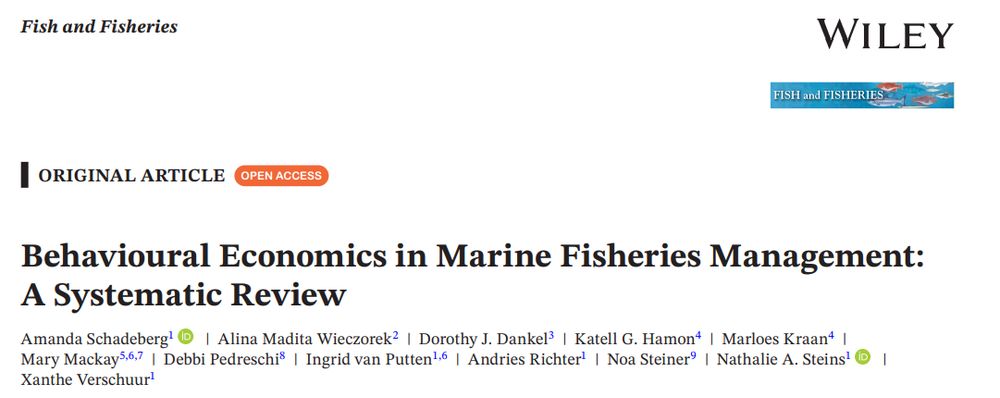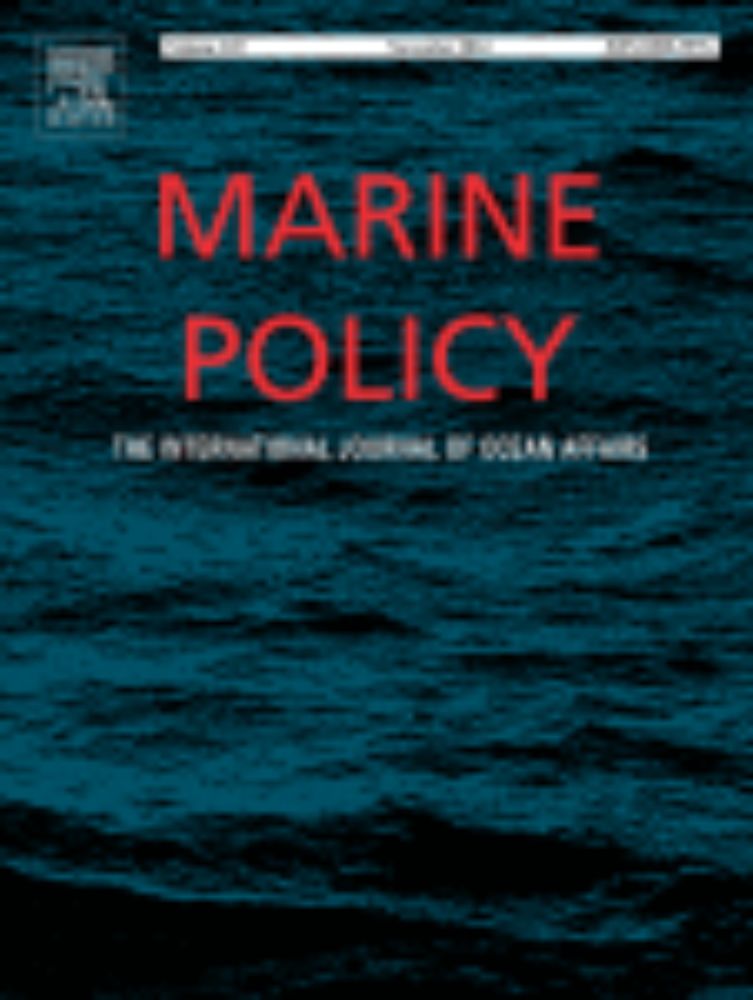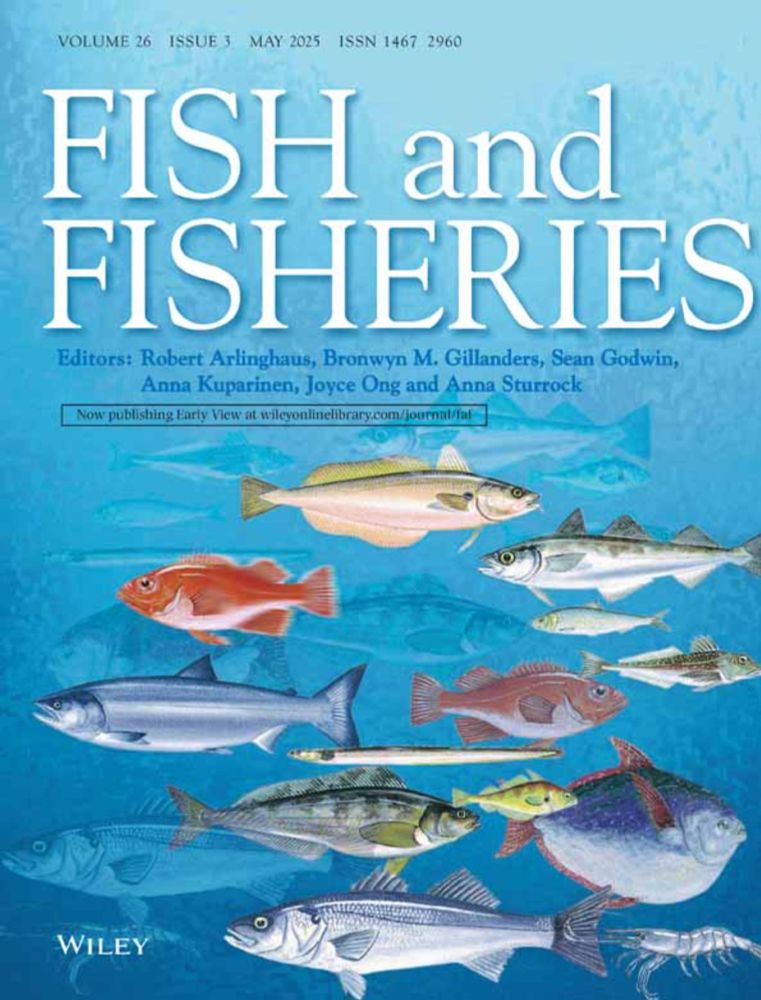A fantastic opportunity for early-career scientists to connect with others and learn about interdisciplinary research. Arranged by the fabulous #SIIECS team (the Strategic Initiative for the Integration of Early-Career Scientists).
Course fees, meals, accomm. covered. Applications until May 15!
21.04.2025 23:25 — 👍 4 🔁 3 💬 0 📌 0
Finally, this is the result of a mammoth effort by co-lead Alina Wieczorek and a tenacious international author team: @dorothydankel.bsky.social, K. Hamon, @marloeskraan.bsky.social, M. Mackay, D. Pedreschi, I. van Putten, A. Richter, N. Steiner, @nathaliesteins.bsky.social, and X. Verschuur
17.04.2025 06:19 — 👍 4 🔁 1 💬 0 📌 0
We see that the field grapples with many interesting concepts, but has trouble operationalising them: most studies present incidental findings and lack links between theory and outcomes. We present a conceptual framework that can hopefully help future researchers improve on this!
17.04.2025 06:19 — 👍 1 🔁 0 💬 1 📌 0
We also reviewed the literature's engagement with #ethics and found that only 14% of the reviewed papers mentioned any sort of informed consent and/or ethics committee processes. We find this alarming, given that the intention of these studies is to steer human behaviour!
17.04.2025 06:19 — 👍 1 🔁 0 💬 1 📌 0
There is evidence for non-economic mechanisms such as social norms, community (self-)education programs, and bandwagon effects (where one does something because everyone else is doing it) being able to change environmental outcomes, suggesting potential levers for change beyond fines and incentives
17.04.2025 06:19 — 👍 1 🔁 0 💬 1 📌 0

There's something for everyone in the results: geographical focus, methods overviews, even which fishers are studied more often. We also look at the outcomes of interventions: environmental, economic, social, and, importantly, the unintended consequences of attempts to steer fisher behaviour
17.04.2025 06:19 — 👍 1 🔁 0 💬 1 📌 0
5 years ago we pre-registered our methods (published here: doi.org/10.1371/jour...
We wanted to create a robust policy-relevant overview of the behavioural economics (BE) literature; a one-stop-shop for understanding the state of the art, the concepts, and the methods of this 'trendy' field.
17.04.2025 06:19 — 👍 1 🔁 0 💬 1 📌 0

Hot off the #MarSocSci press: A systematic review of behavioural economics in #fisheries. We read 140 papers and present insights into the mechanisms, interventions, and outcomes of the field. From social and cognitive biases to policy recommendations - it's all here: doi.org/10.1111/faf....
🧵👇
17.04.2025 06:19 — 👍 8 🔁 4 💬 1 📌 1
Finally, I'm curious to hear how this thinking might apply to other cases: offshore wind farms and GMO food come to mind in the environmental domain, but also AI and even public health surely have instances where "scientifically rational" governance is foiled by public opposition - ideas welcome!
08.04.2025 07:36 — 👍 0 🔁 0 💬 0 📌 0
We offer some ideas for how contestation can be facilitated and social license to operate can be understood in anticipation of, rather than in reaction to, environmental policy debates. Read more here or DM me for a PDF copy
doi.org/10.1016/j.ma...
08.04.2025 07:36 — 👍 0 🔁 0 💬 1 📌 0
Contestation should therefore be invited as part of the policy process, not shied away from! Natural scientists work to resolve uncertainties about marine environments, and social scientists can ensure that stakeholder concerns are understood even before contestation begins!
08.04.2025 07:36 — 👍 0 🔁 0 💬 1 📌 0
The interesting thing is that, at least for now, support AND opposition to mesopelagic fishing can be backed by science, and the scientists we spoke to didn't agree. So while it's important to resolve scientific uncertainties, values and worldviews also cause disagreement, even amongst scientists.
08.04.2025 07:36 — 👍 0 🔁 0 💬 1 📌 0
Turning to mesopelagic fishing, social science methodologies really delivered: Through stakeholder consultation we identified contested facets of mesopelagic fishing, even though it has only really been performed experimentally! Not a crystal ball, but insight into how legitimacy is built
08.04.2025 07:36 — 👍 0 🔁 0 💬 1 📌 0
(This of course makes one think of the greatest example of "science is not enough": climate change! We have known about the adverse effects of CO2 emissions for more than a century, but scientific consensus has been far less important than political will)
08.04.2025 07:36 — 👍 0 🔁 0 💬 1 📌 0
See the paper for more, but the short version is that public and political contestation was not solved by more scientific certainty. Rather, conflicting personal interests, moral beliefs, and compatibility with existing institutions underpinned opposing views.
08.04.2025 07:36 — 👍 0 🔁 0 💬 1 📌 0
What WAS available: willing stakeholders and three analogous case studies (reduction fisheries, pulse fishing, and deep-sea mining). We used a legitimacy framework to untangle why some activities go ahead without opposition while others are hotly contested.
08.04.2025 07:36 — 👍 0 🔁 0 💬 1 📌 0
My co-authors and I started out with an assignment: try to understand what the social acceptability of future deep-sea fishing might be. We quickly realised that this is empirically challenging - asking people whether they would support some faraway and hypothetical activity isn't so robust.
08.04.2025 07:36 — 👍 0 🔁 0 💬 1 📌 0

Science is not enough: The role of legitimacy in the governance of marine activities
Several scientific programs are investigating the potential for the mesopelagic zone to provide food, fish meal, and nutraceutical supplements for hum…
Perhaps difficult reading in a time when it can feel like scientists are screaming into the void, but I'd like to introduce you to an article about why "the best available science" is simply not enough to effectively make decisions about policy www.sciencedirect.com/science/arti...
08.04.2025 07:36 — 👍 0 🔁 0 💬 1 📌 0
After year-long social media hiatus, let's see what BlueSky can do! My research puzzles over the role of science in deep ocean governance. Follow me for musings on interdisciplinary #SocialScience, early-career experiences, and other things related to #STS, #ICES, #SIIECS, #MarSocSci, & #DeepSea
22.01.2025 19:56 — 👍 15 🔁 0 💬 0 📌 0
The Small Grants Programme (SGP) is implemented by UNDP and funded by the Global Environment Facility. SGP supports innovative sustainable development projects.
We work with people and communities to create enduring solutions for just societies and a healthy, resilient natural world.
The GEF is a family of funds working to address the planet’s most pressing environmental problems.
Blue Convergence Fund is a grant-making organization that supports research partnerships and strategic outreach - bringing together interdisciplinary experts, managers, policymakers, and communities around issues in ocean and coastal sustainability.
Accelerating a generation of ocean change-makers
The Green Climate Fund (GCF) is the world's largest multilateral climate fund dedicated to helping developing countries take #climateaction.
The International Climate Initiative (IKI) supports climate & biodiversity projects worldwide.
https://www.international-climate-initiative.com/en/
Through our grant-making, we contribute to a safer, fairer, and more sustainable world.
Impactful philanthropy to advance environmental conservation.
Advocacy, science, education, and awareness.🌍
By Dona Bertarelli
https://linktr.ee/donabertarelliphilanthropy
The Save Our Seas Foundation supports marine projects in the areas of conservation, awareness, research and education.
https://saveourseas.com/
CEO @BlueActionFund.org investing in #OceanOptimism #MPAs #30x30 #Fisheries. Also interested in 🇩🇪 #Meeresoffensive. Views my own.
Official daily update on atmospheric CO2 levels in the post-400 ppm era from Scripps Institution of Oceanography's iconic Keeling Curve.
Anthropologist & Political Scientist / PhD Candidate at University of Bonn / Associate at the German Institute of Development & Sustainability (IDOS) /currently working on knowledge production in marine carbon observations in Ger & Brazil
MARE is an interdisciplinary social science organisation interested in the use and management of marine resources. Its aims to provide a stimulating intellectual climate for academics and policymakers working on topics related to coasts and seas.
he/him | senior economist at @australiainstitute.org.au | interests in economic policy, inequality, the welfare state and industrial relations | views my own
Dr Yi-Kai Tea | Ichthyology Curator, The Australian Museum Research Institute
| Systematic ichthyology | Wildlife photographer | 🏳️🌈he/him
I want a 🐈❤!!!
Starter Packs: https://bsky.app/starter-pack/did:plc:fl5ztptq45qb2qbyo2wkojjk/3le2frmto5t26
Nonpartisan, nonadvocacy data and analysis. Visit us at https://www.pewresearch.org/
Transdisciplinary researcher Trinity College Dublin | Policy adviser 🇪🇺 | Marine social scientist | Integration expert | Board member MARA | Former lawyer | Sí/her | Views my own
Wine mom
Formerly: @walterowensgrpa/@ned_zeppelin_iv




